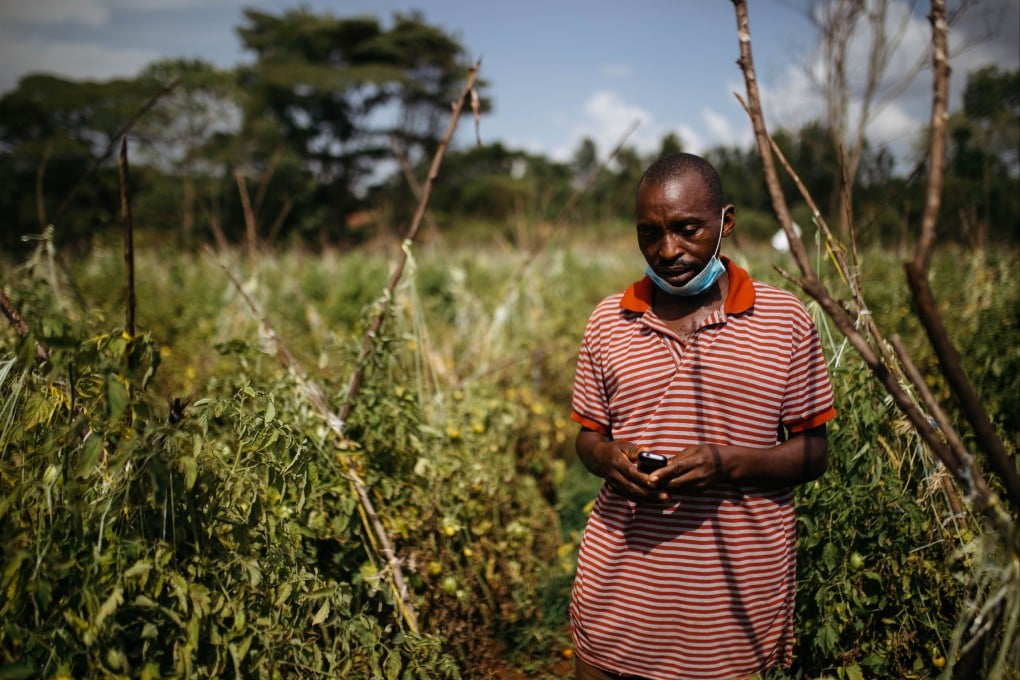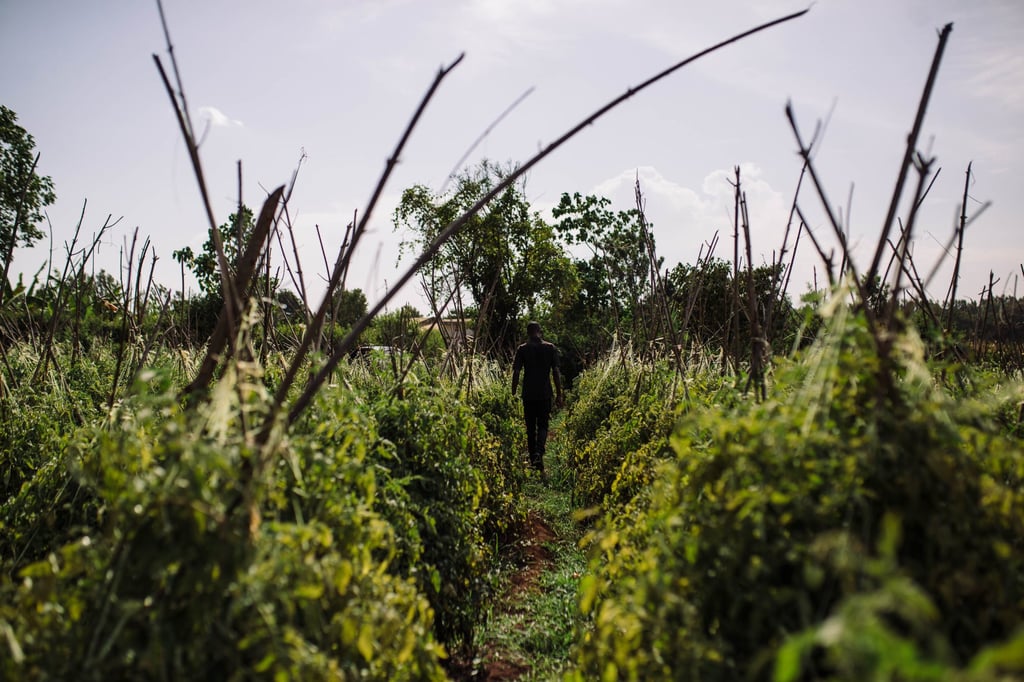How Chinese phones, hardware and software are changing lives in rural Kenya, freeing small-scale farmers from unscrupulous brokers
- Cheap Chinese mobile phones, combined with Kenya’s M-Pesa money transfer system and online marketplaces, are freeing farmers from shifty middlemen

In Baricho, a town nestled in central Kenya’s lush Kirinyaga County, 48-year-old farmer Joel Mukungi surveys his three-quarters of an acre (0.3 hectares) of French beans, voluminous but drooping in the desiccating heat.
While Kenya’s highlands have been commercialised since before the country’s independence from Britain in 1963, and agriculture accounts for more than half of the East African nation’s employment, Mukungi’s lifelong work hasn’t changed much. It is still mostly hard, manual labour, assisted by the occasional donkey.
One thing has changed: Mukungi holds in his hand: an it2163 Itel mobile phone. At 799 shillings (US$6.80), the phone is as basic as they come, but still capable of using M-Pesa, the ubiquitous SIM-based electronic money transfer system. And starting with this bare-bones digital innovation, the local supply chain, by which Mukungi’s and other farmers’ produce has always been distributed, is being transformed.
When M-Pesa launched in 2007, there was no turning back for Kenyans, be they farmers who use the payment system because they don’t have a bank account, or urbanites who have adopted it as a kind of local Apple Pay. It has since helped fuel more than 20 ride-sharing companies in Nairobi and just as many food-delivery apps. However, “start-ups in East Africa have had to adapt to the constraints of a phone’s computing power”, says Andrea Pollio, a Nairobi-based researcher with a PhD in economic geography and urban studies from Western Sydney University.

The world has long been accustomed to the West providing food and medical aid to Africa, but when it comes to building East African financial technology, the task has fallen squarely on East Asia. “Chinese companies are just good at putting good operating systems on a cheap phone,” says Pollio, who specialises in analysing the impact of Chinese tech companies on East Africa’s end of the “New Silk Road”.
While Chinese infrastructure projects – from Mombasa port to the railway slicing through Nairobi National Park – are conspicuous in Kenya, China’s 5G networks, led by brands such as Huawei, are quietly enabling East Africa’s digital frontier. With Western credit cards and digital payment systems yet to be integrated into the region, Chinese brands such as Tecno and Oppo are filling the gap, offering affordable phones with software such as M-Pesa pre-installed. Armed with a decent operating system that can transfer money electronically, handsets such as Mukungi’s Shenzhen-produced Itel are inexpensive enough for those living in poverty to afford.